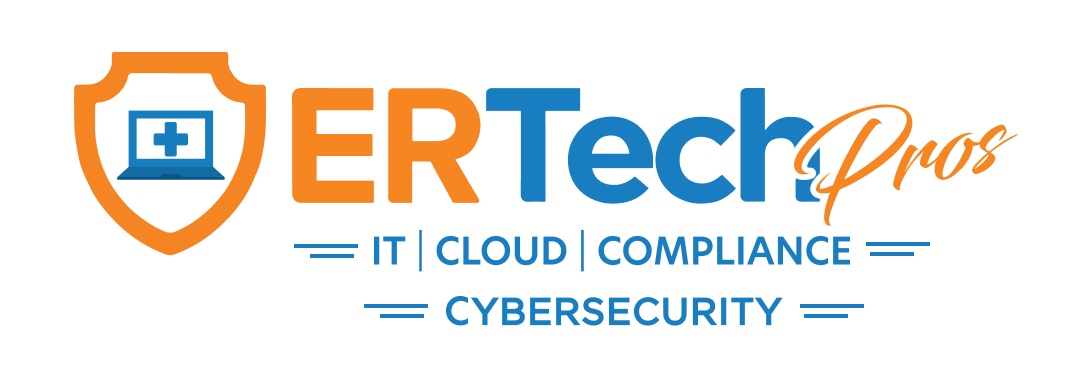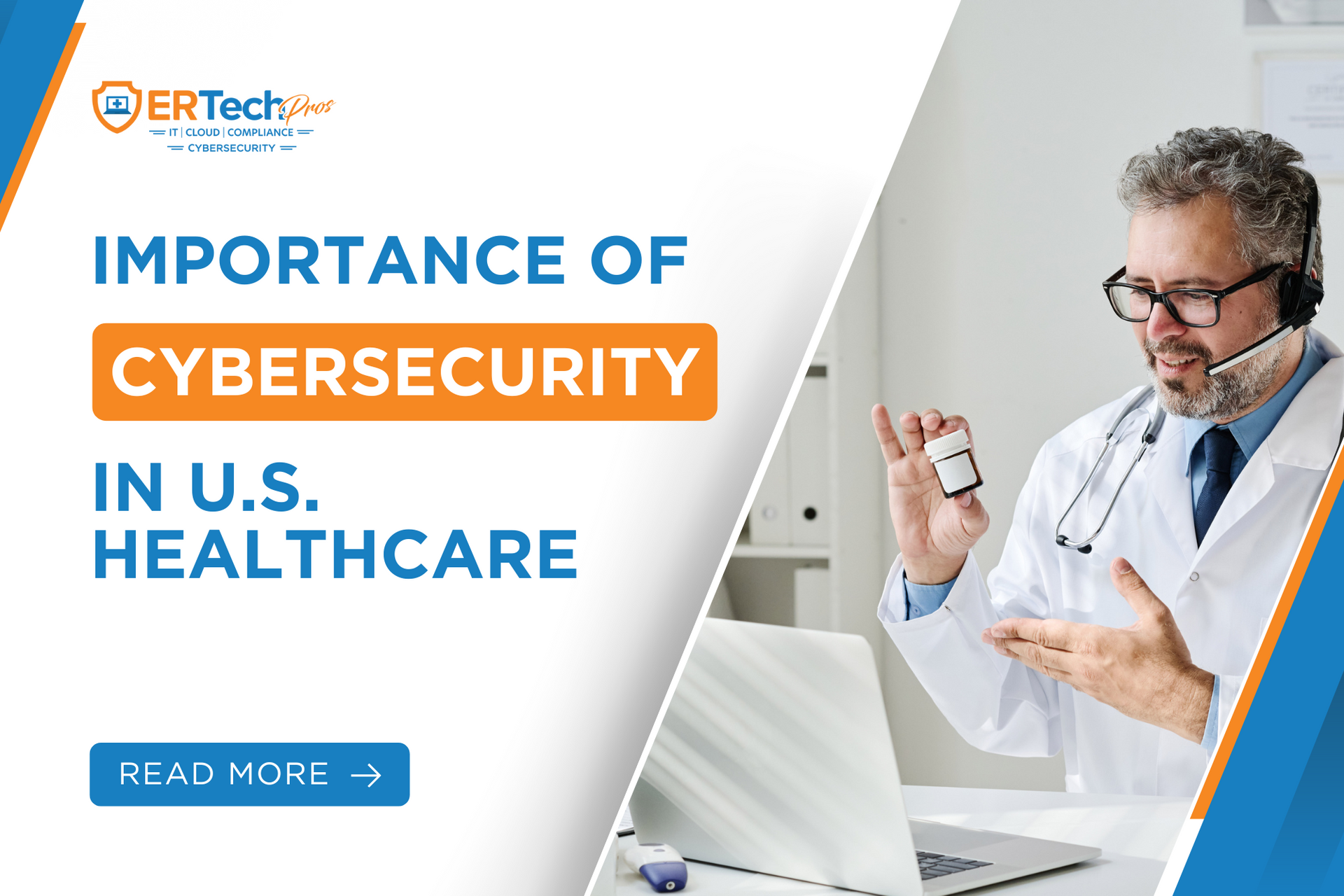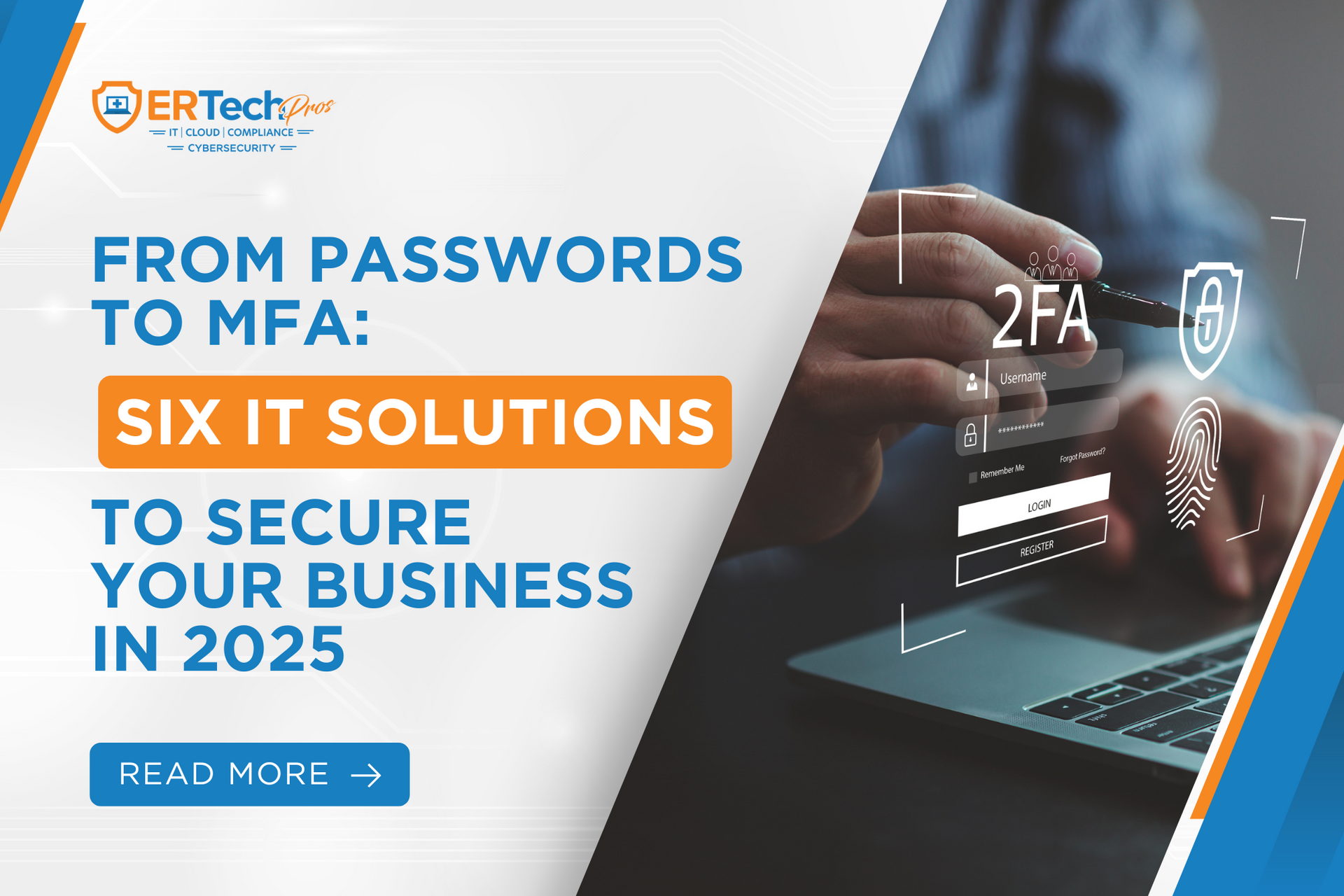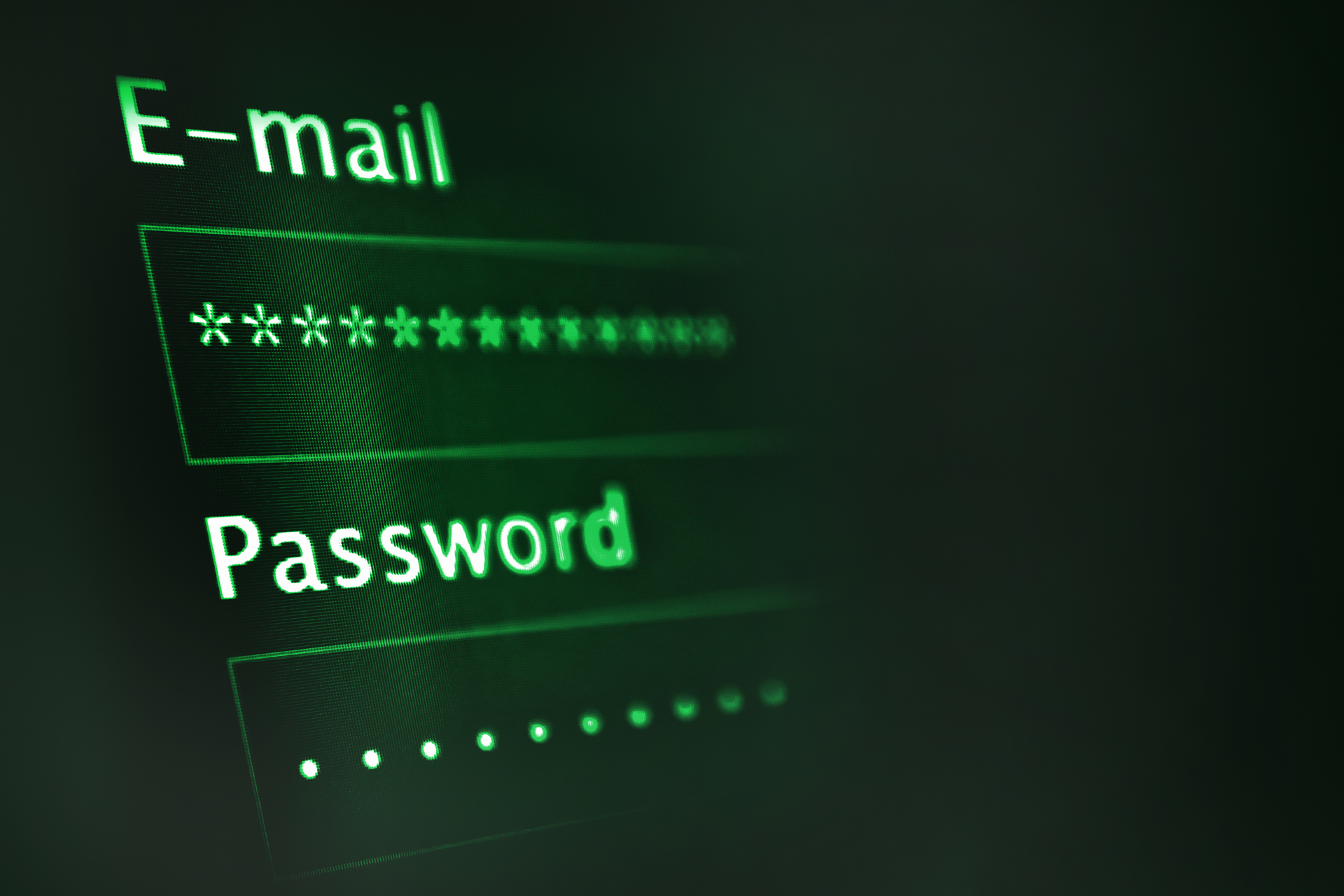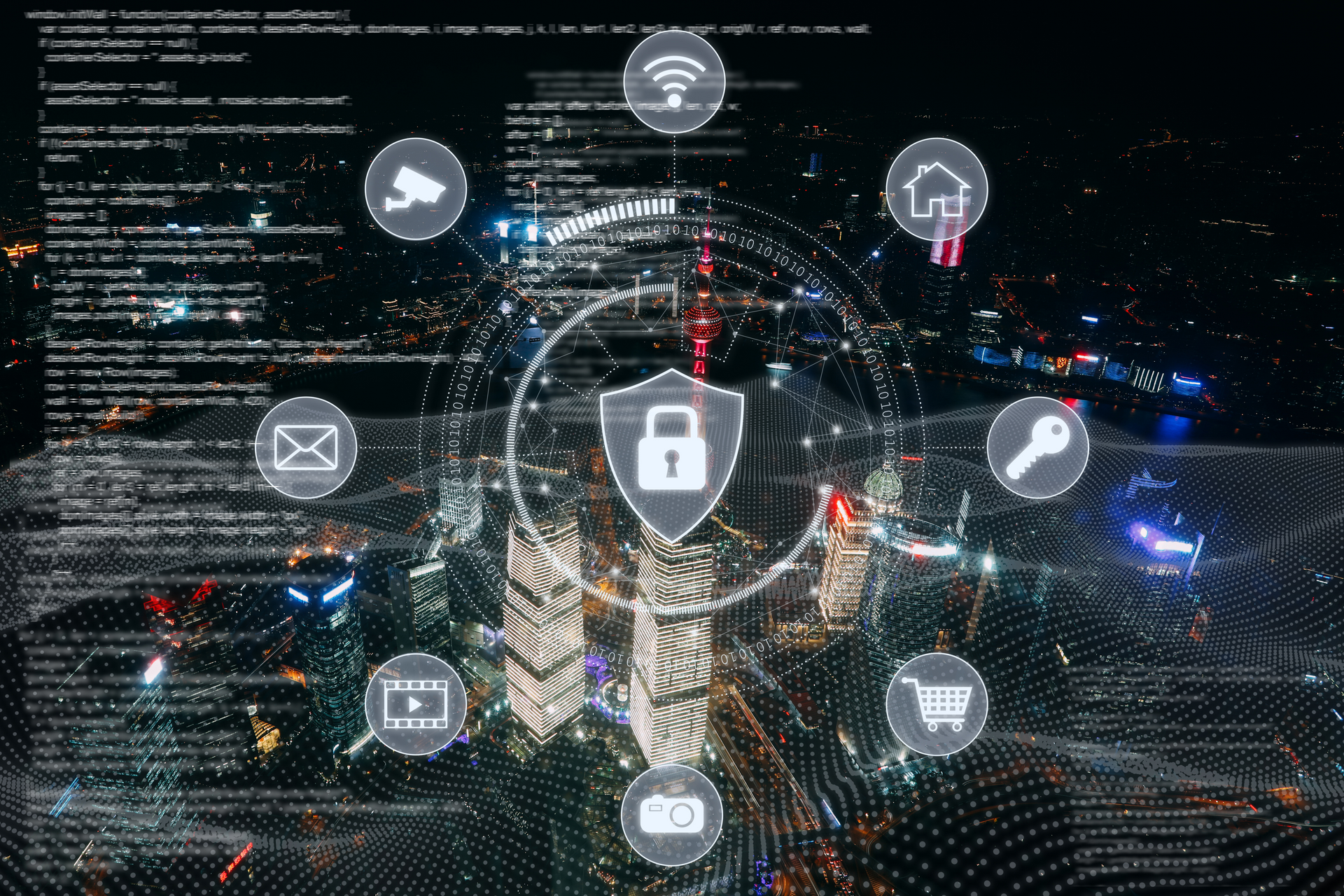Implementing and Maintaining a HIPAA-Compliant Firewall
Security is a major concern for many computer users, even more so for business owners. With the adoption of remote and hybrid work environments, cyber threats and data breaches risks are at an all-time high.
If any of your patients' details are exposed, you could be liable for a hefty fine. You'll want to make sure that your clinic's firewall security is compliant and up to date with the latest cybersecurity protocols.
Outdated and noncompliant technology can compromise the value and reputation of your medical clinic. A HIPAA-compliant cybersecurity firewall is essential in these situations to protect sensitive patient data and maintain regulatory compliance.
Is Your Firewall HIPAA Compliant?
A firewall is one of the essential cybersecurity tools to protect sensitive medical data, but is your clinic's firewall HIPAA compliant?
The Health Insurance Portability and Accountability Act (HIPAA) requires that all healthcare providers, health plans, and clearinghouses protect the privacy of patients' health information through strict data security measures.
To become HIPAA compliant, a firewall should go through cybersecurity testing before it's implemented.
Testing a firewall is necessary for the following reasons:
- Testing helps ensure that your network security protocols and firewalls are functioning properly.
- Testing prevents unauthorized entry from outside sources and provides safe access for authorized personnel only.
- Testing also involves documenting what a firewall allows and doesn't allow as users log in- essential for access control and audit trail requirements.
What Is a Firewall Used For?
A firewall is a cybersecurity tool often implemented in networks of organizations and corporations. It plays a crucial role in network security by preventing unauthorized access to a computer network or electronic communication. Additionally, it offers malware protection and defends against various types of viruses and cyber threats.
Firewalls are the gateway to all your sensitive data and should be monitored constantly for effective threat detection. They can be set up to monitor traffic entering and leaving the network, block all unwanted traffic, and even stop malware before it penetrates your system—greatly reducing the risk of a data breach..
Monitoring an organization's firewall is vital to maintaining a secure network. Periodically reviewing logs supports proactive cyber threat monitoring and will reveal any recently made changes that have not been authorized by the IT department—helping to ensure the integrity of your cyber defense strategy.
What is a HIPAA-Compliant Firewall?
HIPAA-compliant firewalls areadvanced cybersecurity solutions built on standard firewalls technology, specifically developed to address the specific threats associated with the sensitive healthcare data stored in hospitals and clinics.
By implementing these specialized
network security tools, healthcare providers, researchers, insurance companies, pharmacists, medical device manufacturers, and other healthcare-related entities can better
safeguard protected health information (PHI) and ensure compliance with
HIPAA cybersecurity regulations.
Why Should My Firewall Be HIPAA Compliant?
In today's digital age, healthcare providers are increasingly using electronic health records (EHRs) to store and transmit sensitive patient data. As hospitals and medical clinics are large potential sources of valuable data, they have been increasingly targeted by hackers.
One way to protect your clinic from a cyberattack is to implement a HIPAA-compliant firewall, a critical cybersecurity solution for healthcare providers. This type of firewall will isolate all confidential patient data on your network, and allow you to manage who has access to the information within the system.
Your clinic is required by law to comply with strict HIPAA regulations and maintain confidentialit, integrity, security of electronic health records (EHRs), and security of patient information. This law requirements aims to protect patients so their personally identifiable information (PII) data cannot be released without authorization, such as your name, address, Social Security number, or date of birth.
A HIPAA-compliant cybersecurity firewall provides robust network protection against any malware, ransomware, and other cyber threats and makes sure that your patients’ data is secure. It cuts off the flow of information to any external device or networks and helps your clinic stay compliant, avoiding potential data breach penalties and government fines.
What Are the Disadvantages of Not Having a HIPAA-Compliant Firewall?
Put yourself in the position of a hacker who wants to steal patient data and sell it on the dark web. You’re spying on several clinics in one area. Some of them have a HIPAA-compliant firewall and robust cybersecurity measures, while others don’t. Which one will you target?
One of the prominent disadvantages of not having a HIPAA-compliant firewall is getting attacked by cyberattacks and data breaches. Hackers are constantly looking for weak spots in healthcare systems to exploit sensitive patient records.
Another major disadvantage of not having a HIPAA-compliant firewall is prolonged network downtime due to ransomware attacks or malicious intrusions. Even if they couldn’t get their hands on your data just yet, cybercriminals can effectively shut down your practice if you don't have adequate network security.
The worst possible scenario without a HIPAA-compliant firewall is a total IT infrastructure failure. Restoring your systems may take several days or even weeks. By then, your clinic's reputation and profitability will have suffered greatly—and your lack of cybersecurity compliance may even lead to hefty legal penalties.
How to Make Sure Your Clinic Uses a HIPAA-Compliant Firewall
To remain HIPAA compliant, your clinic's cybersecurity protocols, including firewall controls should continuously monitor and control all incoming and outgoing network traffic. By using network security measures such as firewalls, employees can only access websites required for their jobs, reducing the risk of data breaches.
Suppose an employee works as a receptionist and requires access to company email. In that case, firewall controls for the employee's computer can be set to allow access to company email servers, while blocking access to sites the employee's job role does not require, such as Facebook and YouTube. This limits potential exposure to malicious websites and phishing attacks.
When employees are restricted to accessing only the websites and functions necessary to perform their jobs, they are less likely to access websites that could expose their computers to malicious software.
Compared to receptionists, physicians and nurses may need extensive Internet access for research purposes. As part of the HIPAA Security Rule and overall cyber risk management, rules can be created to configure each employee's computer with appropriate network access based on their job roles, enhancing both productivity and data security.
Look at your server logs to find out if your clinic already has a HIPAA-compliant firewall in place. This step is critical for verifying that your healthcare cybersecurity infrastructure is properly configured and aligned with HIPAA guidelines.
If you need assistance in this area, you should get in touch with a compliance professional immediately to avoid any problems.
What Is a Managed Firewall?
If you think managing and maintaining your own firewall is simply not feasible for you, managed firewalls may be your most viable choice—especially when cybersecurity threats are constantly evolving.
A managed firewall is a high-end cybersecurity solution designed for businesses and healthcare providers. As HIPAA-covered entities, you’re required to implement physical, administrative, and technological safeguards to protect patient information and ensure data security and network protection.
You can also view a managed firewall as a network security firewall that is remotely controlled by a service provider. It can be used much like an appliance and installed on remote networks, or it can be hosted at the service provider's data center and monitored 24/7 for cyber threats.
Managed firewalls are more secure than the free versions. They are better at detecting and blocking malware, ransomware, and intrusion attempts, offer enhanced threat detection, improved performance, and greater reliability. Managed firewalls cost more than free versions but are worth the investment for robust cybersecurity defense and compliance protection.
How a Managed Firewall Can Boost Clinic Efficiency
Many doctors are choosing to invest in cybersecurity solutions that protect their medical records. With a managed firewall, clinics can enjoy the benefits of increased network security in their workplace.
But how exactly can a managed firewall improve clinic efficiency? Read on to learn how:
Outsmart Hackers
The cybersecurity landscape is notoriously difficult to navigate, but managed firewall services are available to provide the data protection your organization needs. As a healthcare provider, your organization is always one step ahead of malware and hackers.
A
managed firewall service backs up your organization’s network, monitors internet traffic, and blocks threats before they can do any damage. This means that your organization is always protected, has a built-in defense against
ransomware attacks, and safeguards your
HIPAA-regulated data.
Your staff can focus on their tasks instead of constantly worrying about
cybersecurity breaches..
Prevent Network Downtime
Not all firewalls are created equal. There are two types of firewalls: managed and off the shelf.
A managed firewall is installed, monitored, and maintained by an experienced
cybersecurity professional who analyzes your clinic’s network and its unique needs.
When it comes to off-the-shelf firewalls, your vendor may install it for you. However, you may need to install the firewall yourself if it's not part of their service, and your vendor certainly won't monitor it after installation.
Improve Staff Productivity (Even Among Remote Employees)
Aside from having the ability to set access control rights based on clinic job roles, a managed firewall helps boost staff productivity because it allows seamless internet access on wireless devices.
Remote healthcare workers greatly benefit from this added layer of
cybersecurity. Their work becomes more efficient and safe, with strong
data encryption and threat prevention in place. It ensures the security of their data and allows them to accomplish their tasks without disruption.
Save You More Time and Money
With a managed cybersecurity solution like a firewall, clinic owners can save time since experts are monitoring your network 24/7. Your time can be spent on patient care and practice management instead of worrying about network vulnerabilities.
A managed firewall can also save money by reducing the risk of
cyberattacks, minimizing downtime, and eliminating the need for frequent hardware replacements. You can instead allocate your budget to other critical areas of your practice.
ER Tech Pros Can Manage Your Firewall
As a clinic owner, you know that your clinic is a high-value target for hackers. Healthcare cybersecurity is no longer optional—protecting your data and devices is crucial to safeguard your patients’ sensitive information. But with your team already stretched thin and understaffed, managing cyber threats can feel overwhelming.
Additionally, a basic firewall is not enough anymore. You need a comprehensive cybersecurity solution for network security that covers all aspects of protection – from hardware to software, from prevention to response.
As healthcare’s trusted IT experts, we at ER Tech Pros take HIPAA-compliant cybersecurity seriously and want your clinic's firewall and digital infrastructure to meet all the necessary regulatory requirements.
We provide 24/7 remote IT support and managed cybersecurity services so you can focus on what you do best: providing excellent medical care. With our advanced endpoint protection and network monitoring in place, we help prevent hackers from accessing your systems and continuously monitor for any suspicious activity or data breaches.
We’ve helped dozens of medical clinics strengthen their healthcare data security while saving money and increasing operational efficiency.
Schedule a free, no-obligation
cybersecurity consultation
today and let’s identify potential vulnerabilities in your network—and fix them before it’s too late.
Cybersecurity FAQ for Healthcare Clinics
Why is cybersecurity important for medical clinics?
Medical clinics store highly sensitive data, including patient health records and billing information. Cybercriminals target this information for identity theft, insurance fraud, or ransomware attacks. Strong cybersecurity helps protect your patients and your practice from these threats.
Is a basic firewall enough to protect my clinic?
No. While a firewall is important, it’s only one part of a larger security strategy. You need a layered cybersecurity approach that includes firewalls, antivirus software, endpoint protection, data encryption, employee training, and 24/7 network monitoring.
Can ER Tech Pros help my clinic save money on IT costs?
Yes! Our managed cybersecurity services are cost-effective and scalable. We help clinics improve their security posture while avoiding the high costs of a breach or in-house IT infrastructure.
How can I get started with ER Tech Pros?
Schedule your free cybersecurity consultation today. We’ll identify vulnerabilities in your network and help you create a customized action plan to secure your clinic.
Search Articles
